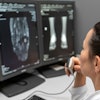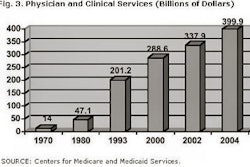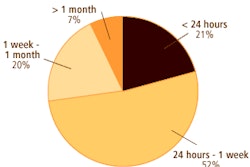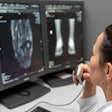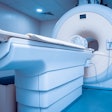A bill has been introduced in the California state legislature that would ban an increasingly popular type of equipment leasing arrangement that some industry experts believe is a new form of physician self-referral.
In the last several years, some imaging providers have begun offering arrangements in which referring physicians can "lease" blocks of time on imaging equipment without owning it outright or having it sited in their offices. The referring physicians are then able to bill insurance payors directly for the technical component of studies and pocket the difference between the reimbursement and the leasing fee paid to the imaging facility.
Some industry observers believe the arrangements may violate federal antikickback rules, but the deals have continued to proliferate in the absence of a definitive federal ruling or enforcement efforts.
The California state legislature is tackling the issue head-on with Assembly Bill 2805, introduced by Rep. Sam Blakeslee (R-San Luis Obispo) on February 24. The bill seeks to amend the state's ban on physician self-referral by adding part-time equipment leasing arrangements to the list of prohibited practices. The bill extends the ban to include "an office arrangement where the licensee or group practice contracts with a person or entity for the provision of CT, PET, and MRI diagnostic imaging services and does not own the equipment or lease the equipment on a full-time basis."
The legislation was written by the California Radiological Society (CRS), according to Robert Achermann, executive director of the Sacramento, CA-based organization. He said the society's goal was to address the sharp increase in utilization occurring among physicians who are using the leasing arrangements -- physicians who will see their profits grow as they refer more patients.
"I don't think this kind of arrangement is defensible," Achermann said. "Radiologists don't have a financial incentive to self-referral."
The bill has some powerful backing, particularly from payors such as Blue Cross of California. At the same time it faces stiff opposition from several nonradiology professional medical societies, such as the California Medical Association and the California Orthopedic Association. These groups have taken the position that part-time leases are efficient models for ensuring that doctors have access to imaging services, Achermann said.
Still on the sidelines is California's major cardiology professional society, and the CRS is in discussions with the group to line up its support for the bill. "We are talking to them," Achermann said. "They feel that if the referring physician isn't providing a service, they shouldn't be getting the technical component."
The legislation passed out of the Assembly's Health Committee on Tuesday on a unanimous vote, after passing out of the Business and Professions Committee previously. On both occasions, legislators voted for the legislation with the proviso that the parties involved work together toward a compromise solution, Achermann said. The legislation is scheduled to be heard in the Appropriations Committee next.
Achermann is hoping that the CRS will have better luck with A.B. 2805 than it did with a proposal last year to ban in-office imaging by nonradiologist physicians. That effort died after failing to move through the legislature, he said.
By Brian Casey
AuntMinnie.com staff writer
April 27, 2006
Related Reading
As more referrers demand leases, rads hope for legal crackdown, May 5, 2005
States, payors seek to stem tide of self-referral abuse, October 29, 2004
Stark II interim final rule leaves huge self-referral loophole, July 20, 2004
Copyright © 2006 AuntMinnie.com


